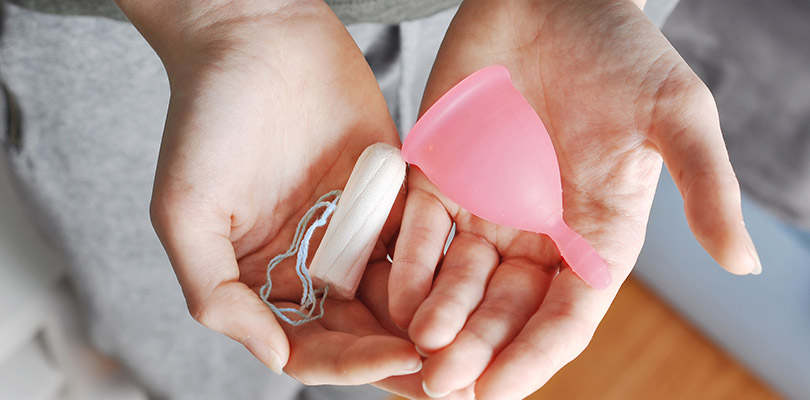The Role of Calcium in the Body
Calcium is a mineral which is vital for many different physiological processes within the body. This mineral plays an important role in:
- Bone and tooth health.
- Muscle contractions, including that of the heart.
- Maintaining blood pressure by controlling constriction and dilation of blood vessels.
- Ensuring normal blood clotting.
With so many different functions within the body, calcium can truly be considered an essential mineral and getting enough is important for many various aspects of health and well-being.
The Relationship Between Calcium and Bone Health
Just one percent of your total body calcium is circulating in your blood at any given time. The remaining 99% is stored in your bones. This gives bones their structure and keeps them healthy and strong.
To keep the amount of calcium required for essential functions in the body stable, and the mineral is continuously being deposited into and reabsorbed from your bones. The rate at which this happens changes with age.
Children and teenagers deposit calcium into their bones more quickly than it is reabsorbed. This ensures that they can grow and develop strong bones and teeth.
This rate slows in young adults, and the amount of calcium being deposited and reabsorbed evens out. Your bone density reaches its maximum between the ages of 20 and 25 before slowly beginning to fall.
In older adults, especially post-menopausal women, the rate at which calcium is deposited into the bones slows dramatically. This means that bone density decreases, the bones become weaker and the risk of breaks and fractures is increased.
What If You Are Not Getting Enough Calcium?
If you are not getting enough calcium, you are at risk of tooth decay and bone problems. One common condition which affects the bones is osteoporosis.
Osteoporosis is common in older people, especially women. As the amount of calcium being deposited into the bones reduces naturally with age, the bones become weaker and take on a sponge-like appearance. This means that you are more at risk of fractures as you grow older, and will need to increase your intake to combat this.
Osteoporosis itself does not cause pain, and you may not realize that you have it until you break a bone. At this point, you may be sent for a special type of x-ray known as a DEXA scan.
This can confirm whether you have developed osteoporosis. The most common symptom of osteoporosis is an increased risk of fractures, but it can also cause deformities of bones such as the spine, giving a hunched over posture.
Some of the symptoms of migraine and a stroke can be similar so it can be hard to know the difference. Here's how to tell if it’s a migraine or a stroke.
Calcium deficiency in children can cause a disease called rickets. In rickets, the bones are soft and fail to develop properly. This can cause deformities such as bowed legs or a curved spine. This is why it is vital that children get enough calcium early in life.
Other problems that can occur due to a lack of calcium are muscle tension and high blood pressure.
How Much Calcium Is Enough?
The amount of calcium you need on a daily basis depends on your age. 1000mg daily is enough for most adults, but this should be increased after the age of 50 for women and 70 for men.
| Age | Male | Female |
| 0-6 months | 200mg | 200mg |
| 7-12 months | 260mg | 260mg |
| 1-3 years | 700mg | 700mg |
| 4-8 years | 1000mg | 1000mg |
| 9-18 years | 1300mg | 1300mg |
| 19-50 years | 1000mg | 1000mg |
| 51-70 years | 1000mg | 1200mg |
| 71 years + | 1200mg | 1200mg |
Most people are able to get enough calcium from dietary sources and do not need to take a supplement.
However, if you do need to take a supplement, it is important to take it as directed and not exceed the stated dose. Too much calcium can cause side effects such as stomach pain and diarrhea.
10 Calcium Rich Foods
There are many different foods which contain calcium, making it easy to get your recommended daily intake from dietary sources. Some of the best calcium-rich foods include:
- Dairy products such as milk, yogurt, and cheese.
- Soybeans and soy products such as tofu.
- Leafy greens, especially broccoli, kale and bok choy.
- Seaweed.
- Shrimp and other seafood.
- Small fish with edible bones such as sardines.
- Fortified bread and breakfast cereals.
- Nuts and seeds, especially almonds and sesame seeds.
- Beans and lentils.
- Figs.
In addition to eating plenty of these calcium-rich foods, you will also need to ensure you are getting enough vitamin D. This is because vitamin D is essential in helping your body to absorb the calcium from food.
Vitamin D is found in oily fish, dairy products, and egg yolks, but the best source is sunlight. This is one reason why it is important to go outside and get some sun on a daily basis.
By doing this and increasing the amount of calcium-rich foods in your diet, you should be able to keep your bones healthy and strong without the need for a supplement.
If you are concerned that you may not be getting enough calcium or vitamin D, talk to your physician. They will be able to run tests and advise you on the best course of action.







